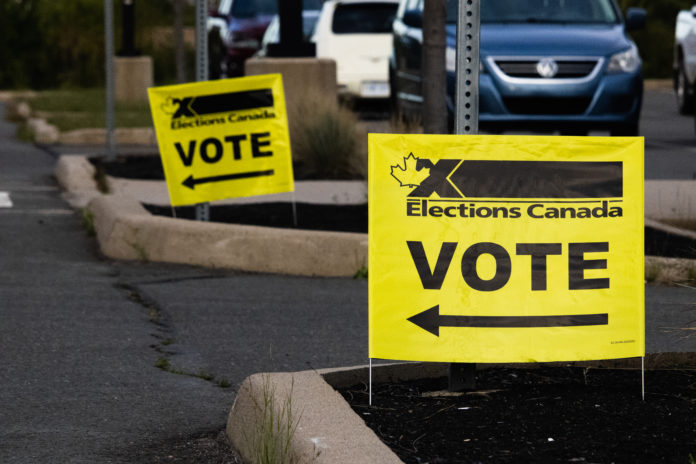
Provincial election day is set for Oct. 21 and with less than a month to go, many students are reflecting on the issues they feel affect them most.
Among the student issues, including healthcare, mental health services, abortion and education, the cost of living was a unanimous concern.
“Cost of living is one of those things that everyone suffers with,” said Nick Reis, a fourth-year criminology and human rights major. “It’s a very real thing that students live paycheque to paycheque.”
Reis is originally from Vancouver, but has been renting in Fredericton for the past two years. He said that in his hometown, prices are “out of this world” and he fears that N.B. could suffer the same fate
According to an annual report by Living Wage for Families B.C., the living wage in Vancouver is $25.68, while the minimum wage sits at $17.40.
In Fredericton, the annual report from the Human Development Council reported that the living wage in 2023 was $24.50 — nine dollars more than the current minimum wage in New Brunswick.
“That just puts all these students, young and old, in a system where they’re set up to fail,” said Reis.
Since living on his own, Reis said he has had his struggles with money. On top of rent, grocery prices have made it necessary for him to be frugal, as he opts to buy cheaper generic brand products.
Despite having a summer job, Reis said his earnings are not much help when it comes to covering basic expenses throughout the school year.
This financial stress can take away from making memories that should be a part of the university experience.
“I’ve really recognized, like, ‘wait a minute, it doesn’t matter if I make $10,000 during the summer, that’s gonna be gone by the first semester,'” he said. “If I have to put all my money towards school and groceries and rent and utilities, unfortunately, I’m not gonna be able to have fun.”
While Reis is a fourth-year, the cost of living is also on the minds of incoming students.
First-year student Teagan Wysote said since living in Fredericton, things have been expensive.
“It’s hard to budget my money sometimes … gas is a lot,” she said.
While this is a change she would like to see for students, Wysote said when it came to the provincial election, she did not know much about it.
Similarly, fellow first-year student MacKayla Becke said she felt that she and other students were not very informed about the election, the voting process, or what to consider when voting.
“[The provincial election] should be more talked about and there should be more out there for students to get more information because I didn’t get as much,” said Becke.
Regardless of her lack of familiarity with the provincial election, Becke said she would like to see leaders address student finances and put the people’s best interest first.
“The loans and dealing with the government, that was very stressful for me,” she said. “I just want someone that will look out for people and want to help people better communities.”
Lia Demmons, a Bachelor of Education student, had similar gripes with the cost of living in the province. As someone who has been renting in Fredericton since 2020, Demmons said she worries about affording a home after graduation.
“A big thing for me and my friends that we’ve talked about a lot is just even the prospects of ever owning a home,” she said. “Like, how do you save to even get there?”
Demmons attributed some students’ financial turmoil to poor rent control in the province since the provincial rent cap expired in January of 2023.
She said that frequent rent increases make it difficult for students to save their money.
“[The removal of rent control] has affected not just students, but also low-income families, single-family households,” she said. “I feel like there’s been certain decisions [made by the government] that have amplified the situation.”
With the election coming up, both Demmons and Reis said they’d like to see leaders address issues that affect students such as cost-of-living and rent control.
“How [rent control] has been addressed the past little while with the [current government] has not been effective,” said Demmons. ”That is something that I want to familiarize myself with before I go out and vote.”
“I’m hoping that one of these parties can really make an argument that addresses what is such a big thing in Canada,” said Reis. “There’s got to be a long-term solution.”
With files from Katherine del Salto.
